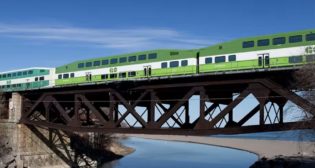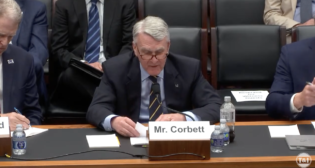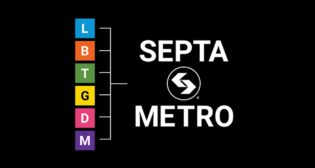
Transit Briefs: Metra, Sound Transit, GCRTA
Written by Marybeth Luczak, Executive Editor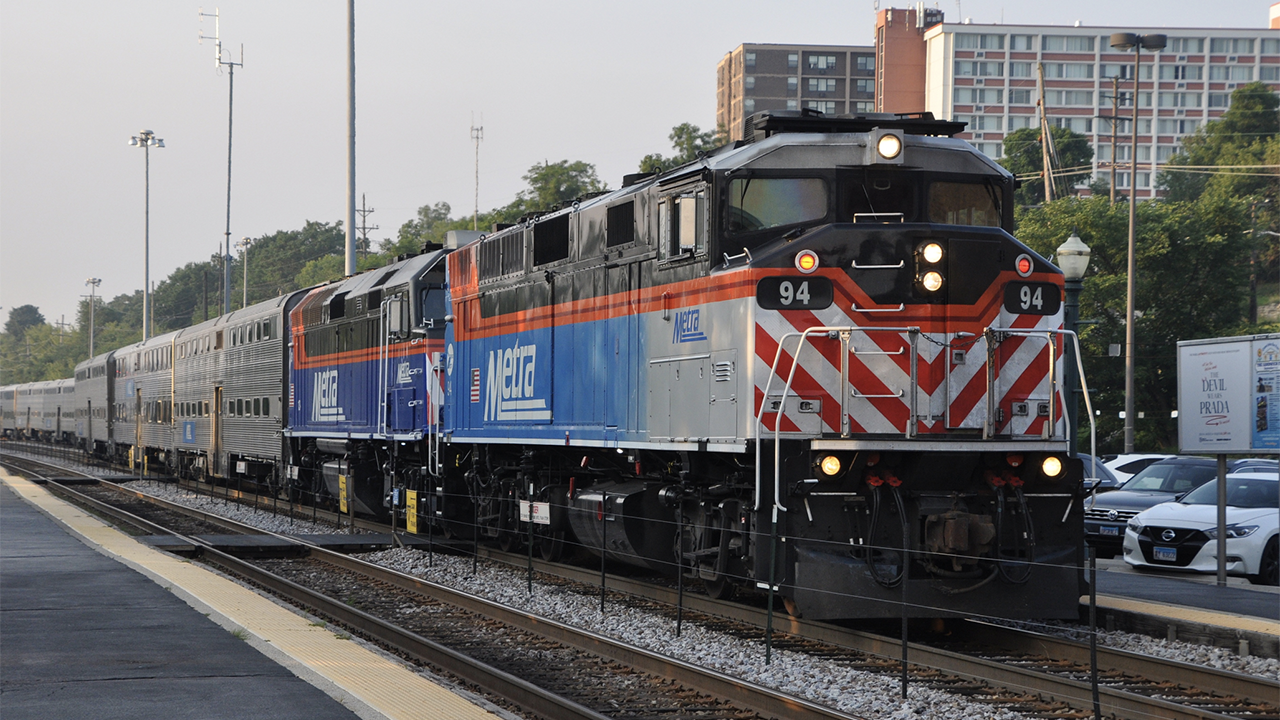
Metra is changing its fare structure, prices, and purchase channels effective Feb. 1. (Metra Photograph)
Chicago’s Metra is changing its commuter rail fare structure and closing remaining ticket windows. Also, Seattle’s Sound Transit will consider fare gates this year; and Greater Cleveland Regional Transit Authority (GCRTA) wins a “Healthy Worksite” award.
Metra
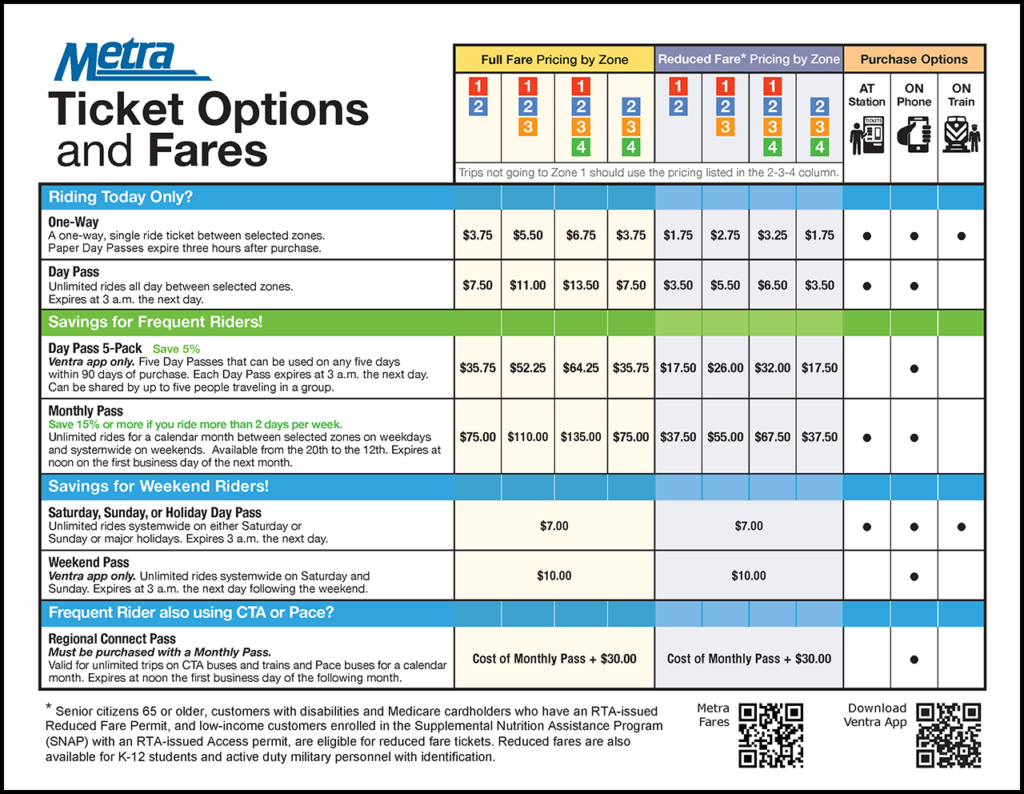
Starting Feb. 1, Metra will be changing how it sells tickets, and what kind of tickets it sells and at what price. Here are the highlights:
- There is a new fare structure with a variety of prices, products and rules, which was approved by the Metra Board of Directors in November. Metra said the goal was to create a fare structure “that customers can easily understand, that encourages ridership, simplifies onboard fare collection, and meets Metra’s financial and technical constraints.” Fares under the new structure are set at or below pre-pandemic levels and promotional fares introduced during the pandemic are being discontinued, according to the commuter railroad (see above). The 10-Ride Ticket is being replaced with a Day Pass 5-Pack. The five Day Passes can be used on any five days within 90 days of purchase, and the Day Pass 5-Pack will be available only in the Ventra app. The promotional $100 Super Saver Monthly Pass is being eliminated, and Monthly Pass prices will again be based on distance traveled. Additionally, the $30 Regional Connect Pass will be available to Monthly Pass buyers in the Ventra app only for unlimited rides on Chicago Transit Authority and Pace bus services. One-Way Tickets to Zone 1 will cost $3.75 from Zone 2, $5.50 from Zone 3, and $6.75 from Zone 4. One-Way Tickets covering trips that do not begin or end downtown (Zone 1) will cost $3.75. The weekday Day Pass will be priced at twice the cost of a One-Way Ticket and will be valid for unlimited rides for a single day within the zones selected. The $6 and $10 weekday Day Passes will be discontinued. According to Metra, incremental fares—a surcharge to travel beyond the zones indicated on the ticket—will be discontinued. Riders will be required to buy a ticket valid for the trip they are taking. For riders on the Rock Island or Metra Electric lines, the Fair Transit South Cook pilot, which allows all riders on those lines to pay the reduced fare rate for tickets, is ending Jan. 31. Metra reported that the new Access pilot will begin Feb. 1, offering reduced fares to low-income Metra riders region-wide. All Supplemental Nutrition Assistance Program (SNAP) recipient household members living within the six-county region are eligible for the Access pilot.
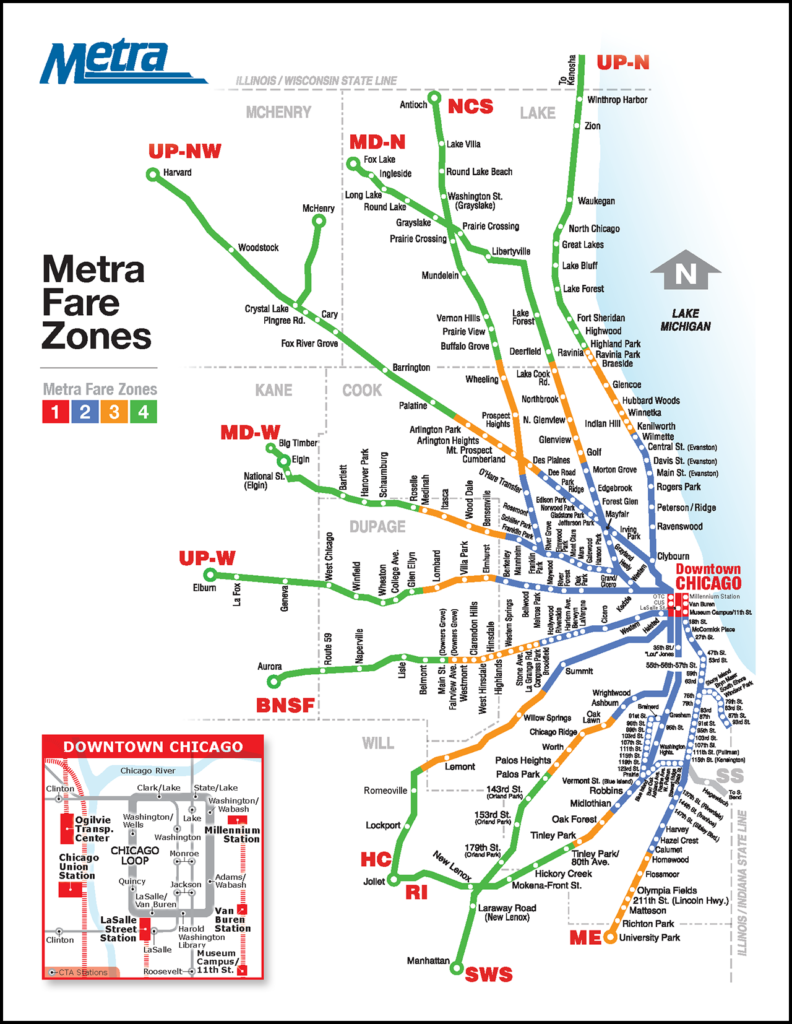
- Fare restructuring has reduced the number of fare zones from 10 to four, with downtown stations assigned to Zone 1 and outlying stations assigned to Zones 2 through 4 (see above). The zones are based on a combination of distance from downtown, service patterns and ridership characteristics on each line, which vary, Metra reported.
- Metra is closing its remaining ticket windows at outlying stations on the BNSF Line on Jan. 8 and on all other lines, including at downtown stations, on Feb. 1. Vending machines have been installed “at the busiest stations,” Metra said, and tickets can also be purchased through the Ventra app and conductors on trains. According to the commuter railroad, “some of the agents” will become customer service representatives.
How will the higher fares help Metra? The railroad estimates that the new fare structure “will generate only slightly more fare revenue” than if it stuck with 2023’s fare structure and prices, “and much less than was generated by our pre-COVID fares, which were much higher.” The new revenue, it added, “won’t allow us to do or buy anything extra; it will help us cover increases in our costs due to inflation and use slightly less federal relief … next year, hopefully helping to allow that relief to last until alternative funding is secured. A state-created body is currently studying the issue and is expected to recommend funding solutions before that federal aid runs out in 2026.”
Sound Transit
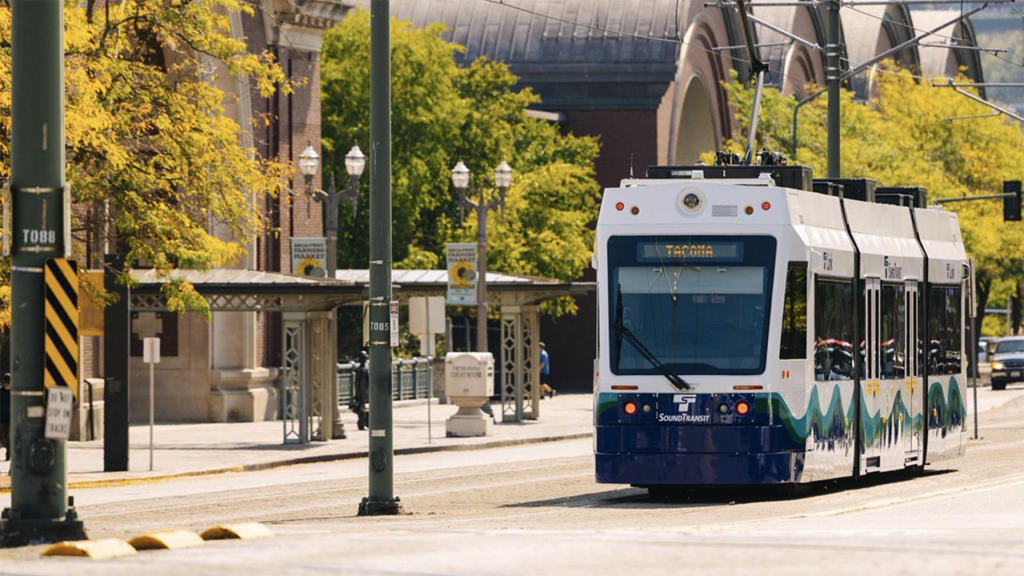
In 2024, Sound Transit’s Board of Directors is expected to consider installing fare gates on the Link light rail system, according to The Seattle Times.
“Sometime this year, the Sound Transit staff will issue a detailed briefing to the board about fare gates, said spokesperson John Gallagher,” according to the newspaper. “There’s no current proposal to experiment with them.”
A 2022 draft report found that retrofitting 19 Seattle and six Tacoma stations would cost approximately $104 million, but follow-up research is required, The Seattle Times reported.
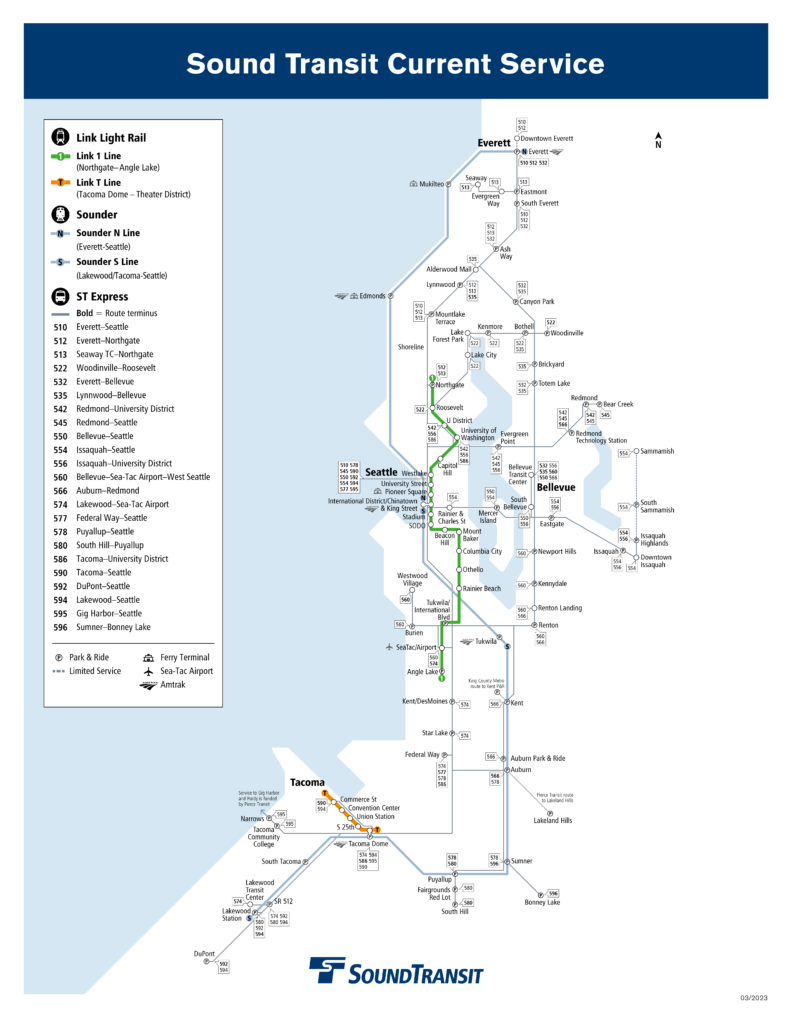
“Seattle’s actual costs would be far higher, staff expect, because of challenges such as installing new wires underground and through station floors, a risk the report acknowledged,” according to the newspaper.
“During the 2010s, as many as 95% of riders paid their fares, while spot checks reached about one-tenth of railcars,” said the newspaper. “Enforcement halted in 2020 to reduce COVID exposure, to reduce confrontations involving police or security guards, and in response to audit findings that Black and homeless riders were disproportionately cited. Nowadays, service-oriented fare ambassadors request proof of payment, but they’re understaffed and often ignored.”
According to The Seattle Times, Sound Transit staff estimated that 55% of riders paid fares in 2023. It noted that “[y]outh ride free statewide, so actual evasion is somewhat less.”
In related developments, Sound Transit recently earned Moody’s highest-possible bond ratings and moved to a new flat fare structure for light rail.
GCRTA

The Healthy Business Council of Ohio (HBCO) has recognized GCRTA as a Gold Level winner for healthy worksite practices in 2023, as part of its Healthy Worksite Recognition Program, the transit authority reported Jan. 4. GCRTA was one of 91 Ohio employers to earn an award.
The annual program recognizes Ohio employers that have “demonstrated a commitment to their employees’ wellbeing by providing comprehensive worksite health promotion and wellness programs,” said GCRTA, which provides bus, BRT, trolley, paratransit and rail to the 59 communities and 1.2 million residents of Cuyahoga County. “This designation program acknowledges efforts made to improve overall employee health, enhance productivity, and ensure a healthy work environment.”
HBCO reviewed and evaluated all applications. Four levels of high achievement were awarded in 2023: Bronze, Silver, Gold, and Platinum.
“I’m so proud of our Benefits team and Wellness Committee for always innovating and pushing wellness through various creative and educational events and promotions throughout the year,” GCRTA Deputy General Manager, Human Resources George F. Fields said. “Their collective efforts provided relevant knowledge and information that improved the health literacy of GCRTA employees in making well-informed health-related decisions.”


